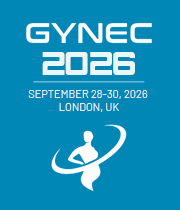Title : Glycogenated cells, Forgotten or ignored?
Abstract:
The Papanicolaou test (Pap test) is the most widely used screening test utilized for evaluation of atypical cells that eventually may cause uterine cervical cancer. The Bethesda criteria were established to assign abnormal cells to various categories, which dictate clinical management. Glycogenated atypical squamous cells are usually seen on cervical Pap smears, but there is no published information regarding interpretation of their cellular changes and whether they correspond to the changes seen in non-glycogenated atypical cells. We evaluated 100 Pap tests with diagnosis of “atypical squamous cells of undetermined significance” (ASCUS) and 95 Pap tests with diagnosis of “low grade squamous lesion” (LSIL) to evaluate presence or absence of glycogenated squamous cells with the characteristic cellular changes required for the diagnoses of ASCUS and LSIL, respectively. Among 100 Pap tests with diagnosis of ASCUS, 49 (49%) cases had atypical glycogenated cells, 40 (40%) of which had features diagnostic of ASCUS. We found 46 atypical glycogenated cells (49%) in review of 95 LSIL Pap tests, and 60 of them had features diagnostic of LSIL (63%). At the time of diagnostic screening, there were 17 ASCUS cases (17%) in which the abnormal glycogenated cells had been marked and 13 LSIL cases (14%) in which the abnormal glycogenated cells had been marked. A low percentage of abnormal glycogenated cells were noted to be marked during the diagnostic screening process, which may indicate the challenge in evaluating changes in glycogenated cells. This is more problematic when the only abnormal cell is a glycogenated one. The changes in glycogenated cells are important and should be emphasized when Pap tests are screened by cytotechnologists and evaluated by cytopathologists.




